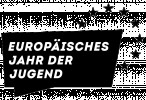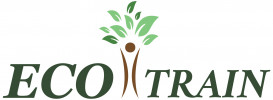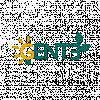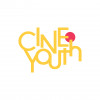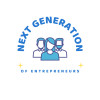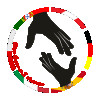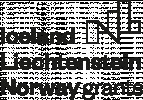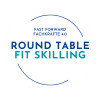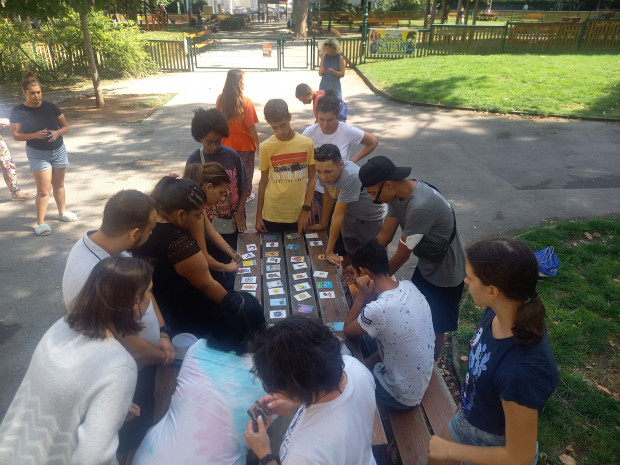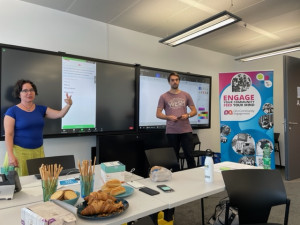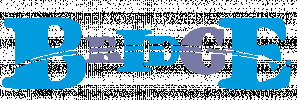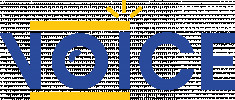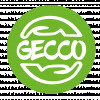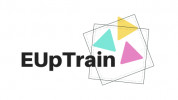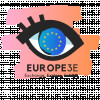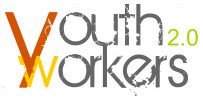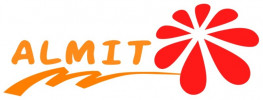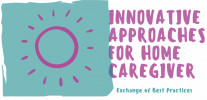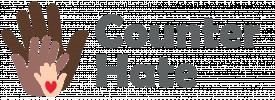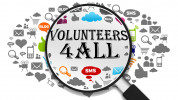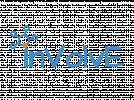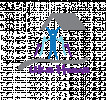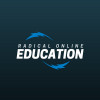Review
A Selection of completed Projects and Events.
ECOTRAIN
Ecological Training for VET Staff in Technical Professions
Reduction of CO2 emissions, usage of less natural resources, climate-friendly manufacturing processes – within the sector of technical professions there are a lot of things that can be done in order to make a vast contribution to reduce the impacts of climate change. Nevertheless, there is often a lack of awareness about the concrete elements that every person and employee can change at his/her workspace – even within the groups of teachers/trainers/educators in VET organizations (vocational education and training) across the European Union. However, it is precisely these educators who pass on knowledge and content to the learners in training centres such as BPI of ÖJAB, who later work in technical companies and businesses. This results in a strong need for further training of teachers, trainers and educators within the framework of green practices in technical occupations.

Project Objectives
Project Objectives
ECOTRAIN offered educators the expansion of knowledge about a sustainable and careful handling in technical professions such as glass construction technology, electrical engineering or metal processing. Within ECOTRAIN further education modules were developed, which are used in the adult education companies of the project partners and numerous other educational institutions.
- Phase 1: Collecting best practice examples from all partner countries
- Phase 2: Developing learning modules
- Phase 3: Piloting the further training programme in partner countries
Overall Goal
- To provide VET trainers in technical occupations with continuing education in the area of environment, resource-saving practices and sustainability in their work environment
Specific Goals
● To provide further education to at least 60 trainers in technical professional fields
● To enable exchange of best practice experiences between different adult education institutes in Europe.
Project results
Best Practice Catalogue (PDF, 8 MB)
Training Module A (PPT, 438 KB)
Project partners: ÖJAB, Coordinator (Austria), AKMI (Greece), Road Transportation School „Vasil Drumev“ (Bulgaria)
Project duration: May 2022 – August 2023
Funded by the European Union. Views and opinions expressed are however those of the author(s) only and do not necessarily reflect those of the European Union or the European Education and Culture Executive Agency (EACEA). Neither the European Union nor EACEA can be held responsible for them.
GENTE
Green Enterpreneurship Skills for NEET (= Neither in Education, Employment or Training) Persons
The project GENTe aimed to provide alternative ways of learning to a broad range of young adults and helped them develop their knowledge, skills and capabilities in order to be benefited from opportunities for employability and entrepreneurship. The educational activities of GENTe offered the participants the opportunity to explore new forms of employability and motivated them to either join existing small and medium-sized enterprises or, ideally, put their own ideas into practice and start their own small, green, business. Furthermore, all participants involved in the project became more aware in terms of environmental issues and put green entrepreneurship into practice, growing a green mentality of learning and working in the EU. Furthermore, the participants benefitted from the project by improving their digital literacy and creating eco-friendly, green and sustainable businesses.
The main objectives of the project were:
- Contributing to the EU’s strategies for green entrepreneurship by offering the opportunity to a broad range of people, especially women, to be involved and utilize their potential.
- Promoting green growth and becoming part of developing a resource-efficient, circular economy where nothing is wasted.
- Developing innovative educational tools that will facilitate the development of new and innovative digital skills among NEET people in Europe.
Target groups:
The core participants of the GENTe project were:
- NEET individuals, especially women
- SMEs (=Small and Medium Enterprises), start-ups, local entrepreneurs etc.
- Wider stakeholders in the field of adult learning, such as training centers, as well as municipalities, chambers of commerce, trade union etc., at a local, regional, national and European level who are also taken into consideration as participants in some project activities.
Project partners: Germany (coordinator), Greece, Cyprus, Italy, Romania and Austria
Project website: https://genteproject.eu/
GENTe on social media: Facebook | LinkedIn
GENTe digital platform: https://genteproject.eu/login/
Project duration: February 2022 – February 2024
Downloads
Newsletter MaY 2022Newsletter JANUARY 2023Newsletter June 2023Newsletter January 2024Interactive GuidebookThis project has been funded with support from the European Commission. The responsibility for the content of this publication lies solely with the author; the Commission is not liable for any further use of the information contained therein.
cineyouth
Fostering Youth Creativity through Application of Online Cinema Simulator
Since December 2021, ÖJAB was involved as project partner in the Erasmus+ funded youth project CINEYouth. The main goal of the project was to foster youth creativity in the field of cinema and video making thus enhancing the development of social skills and competences affected by the isolation during the pandemic times.
Project objectives
CINEYouth aimed to:
- create training content adapted to low-educated young people on how to improve their communication and personal expression skills using attractive, digital and creative tools such as the fundamentals of the filmmaking.
- give disadvantaged young people access to specialised cinema education and broaden their opportunities for professional development
- offer youngsters real chance to practice their talents and self-expression by free interactive digital tools which stimulate pro-activeness and interest in creating short films.
PROJECT TARGET GROUP
The project target group were disadvantaged young people:
- low skilled and low-educated
- socially inactive, in risk of marginalization and lack of youth activity coverage
- with interest on cinema art but deprived to practice due to social and economic reasons
Project partners: Bulgaria (coordinator), Greece, Slovenia, Cyprus and Austria
Project duration: December 2021 – December 2023
next Generation of Enterpreneurs (NGOE)
Since March 2022, ÖJAB was involved in the Erasmus+ funded youth project NGOE as a project partner. The main objective of the NGOE project is to promote entrepreneurship among young people.
Aims of the Project
The specific aims of Next Generation of Entrepreneurs were:
- Foster entrepreneurial initiatives among young people by developing their entrepreneurial skills through an innovative non-formal pedagogical methodology;
- Develop entrepreneurial skills using new ICT tools: development of new learning methods and integration of digital technologies in learning and teaching;
- Develop the necessary tools based on a human-centred design approach, taking into account the needs, desires, limitations and environment of the individual
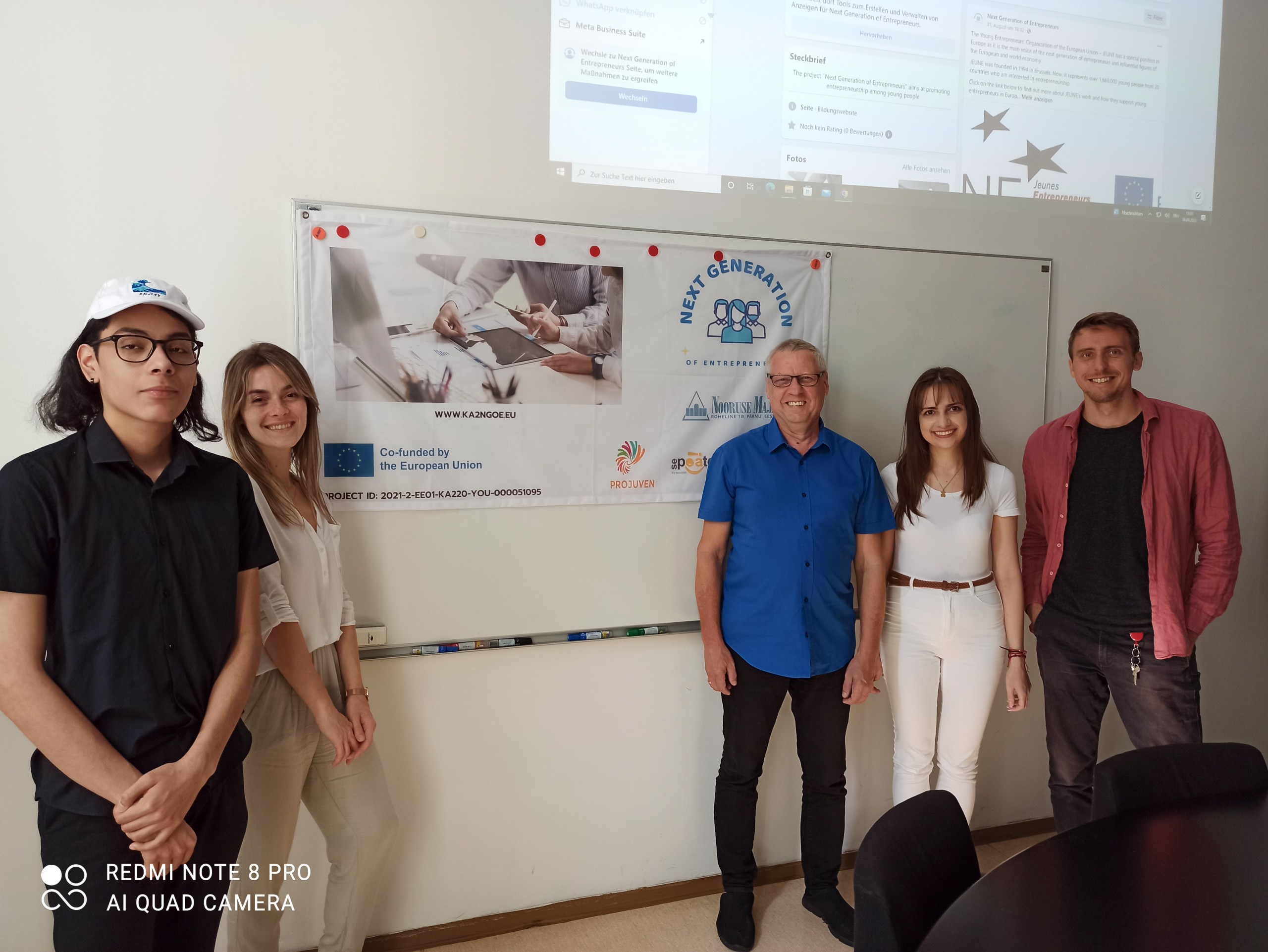
Project Target Group
- youth workers and all professionals working with young people in a non-formal setting
- young people aged 15-19 enrolled in secondry schools
Estland (Coordinator), Spanien, Italien, Rumänien und Österreich
Project website: https://www.ka2ngoe.eu/
NGOe on social media: Facebook | Instagram
Project duration: March 2022 to November 2024
This project has been funded with support from the European Commission. The responsibility for the content of this publication lies solely with the author; the Commission is not liable for any further use of the information contained therein.
GIVE THEM A 2 CHANCE (G2C)
The main objective of the Give me a 2 chance (G2C) project was to provide second chance support to entrepreneurs whose first business has failed or was not successful and to accompany them in this venture through targeted skills acquisition.
Aims of the project
The specific objectives of G2C included:
- Encouraging failed and former entrepreneurs to learn from their experiences by providing them with the right tools.
- Developing an interactive online self-assessment tool to identify areas for improvement, strengths and weaknesses.
- Develop innovative digital educational content (online course in the form of e-learning modules)
- Providing educational resources for teachers, trainers and mentors in vocational education and training to support and guide failed and ex-entrepreneurs.
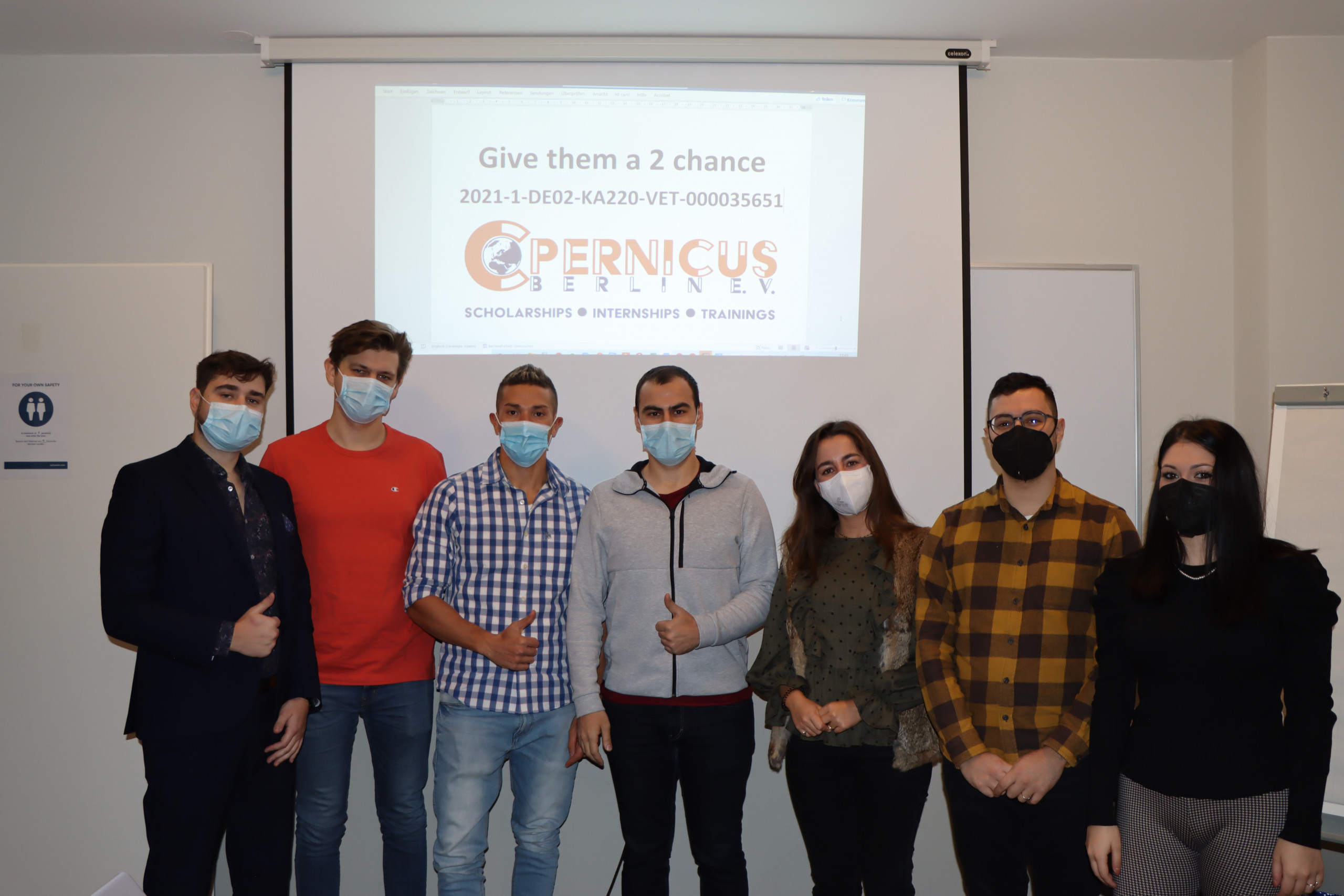
Target Audience
G2C had two main target groups:
- Failed entrepreneurs (who have gone bankrupt and/or are in the process of restructuring their business) and former entrepreneurs (who have not failed but have ceased their activities due to lack of success).
- Mentors, teachers, trainers, educators working in VET centres/institutes, business associations/chambers of commerce, vocational schools and NGOs providing VET and entrepreneurship education.
Free Training in Italy
From August 20th to 26th, 2023 (arrival on August 19th; departure on August 27th), a free 7-day training took place in Rende, Italy, as part of this Erasmus+ project. The training focused on reviewing a developed handbook for mentors for failed entrepreneurs. Participants from six countries (Austria, Germany, Spain, Italy, Portugal, Poland) attended the training, suitable for:
- Persons who have a residence in Austria
- People interested in learning new entrepreneurship skills, developing their entrepreneurial skills and meeting like-minded people from other countries
- People who have experience with the Erasmus+ program or are interested in working with it
All costs were covered by the project: travel expenses, accommodation and meals.
Training programProject partners: Germany (coordinator), Italy, Portugal, Poland, Spain, Austria
Project duration: November 2021 to November 2023
This project has been funded with support from the European Commission. The responsibility for the content of this publication lies solely with the author; the Commission is not liable for any further use of the information contained therein.
EURIBOR
Promoting Sustainable Measures to empower Young Women
The EURIBOR project focused on the transfer of know-how and best practices in the areas of work and employment prospects for young people. Specifically, it aimed to reach women aged 24-29 living in precarious situations in rural and semi-urban areas.
PROJECT OBJECTIVES
The project aim was to address the individual needs of young women in order to remove barriers to active participation in education or work. A success factor for this were European project partners who work with disadvantaged young people at regional level and who were able to take into account the risk factor "periphery".
- Transnational and regional cooperation of the project partners with the relevant local actors
- Proactive outreach work
- Individual, socio-pedagogical approach to the assessment of skills
- Psychological, employment and social service counselling in relation to various aspects of life concerning barriers to participation in education and work
- Employability programmes consisting of on-the-job training, online courses and online entrepreneurship programmes, complemented by mentoring
Through the mix of these measures, EURIBOR improved the employment situation of young women, increased the number of young women experiencing social inclusion and strengthened transnational cooperation on labour market issues.
ÖJAB supported the project as an expertise partner and passed on know-how from its work experience with the target group to European project partners.
Project partners: Poland (coordinator), Italy, Spain, Bulgaria, Malta, Slovenia
Expertise partners: Austria, Germany
Project duration: November 2021 to January 2024
The project was funded by the EEA and Norway Grants Fund for Youth Employment.
EPISODE
Enterpreneurial Skills for Disabled People
As of March 2023, ÖJAB was coordinator of the Erasmus+ funded project EPISODE. The main goal of the project was to build capacities for teachers and trainers of adults with disabilities, in order to stimulate them as well as to contribute to the inclusion of the disabled population with fewer opportunities in the entrepreneurial sector.
Project objectives
The project aims were:
- Developing a modular curriculum tailored to the educational needs of teachers and trainers of adults with any physical vulnerability
- Upskilling teachers and trainers on how to effectively reinforce their competences towards the promotion of self-employment and entrepreneurship of people with disabilities
- Building capacities for equal working opportunities, tackle prejudice prejudice and discrimination.
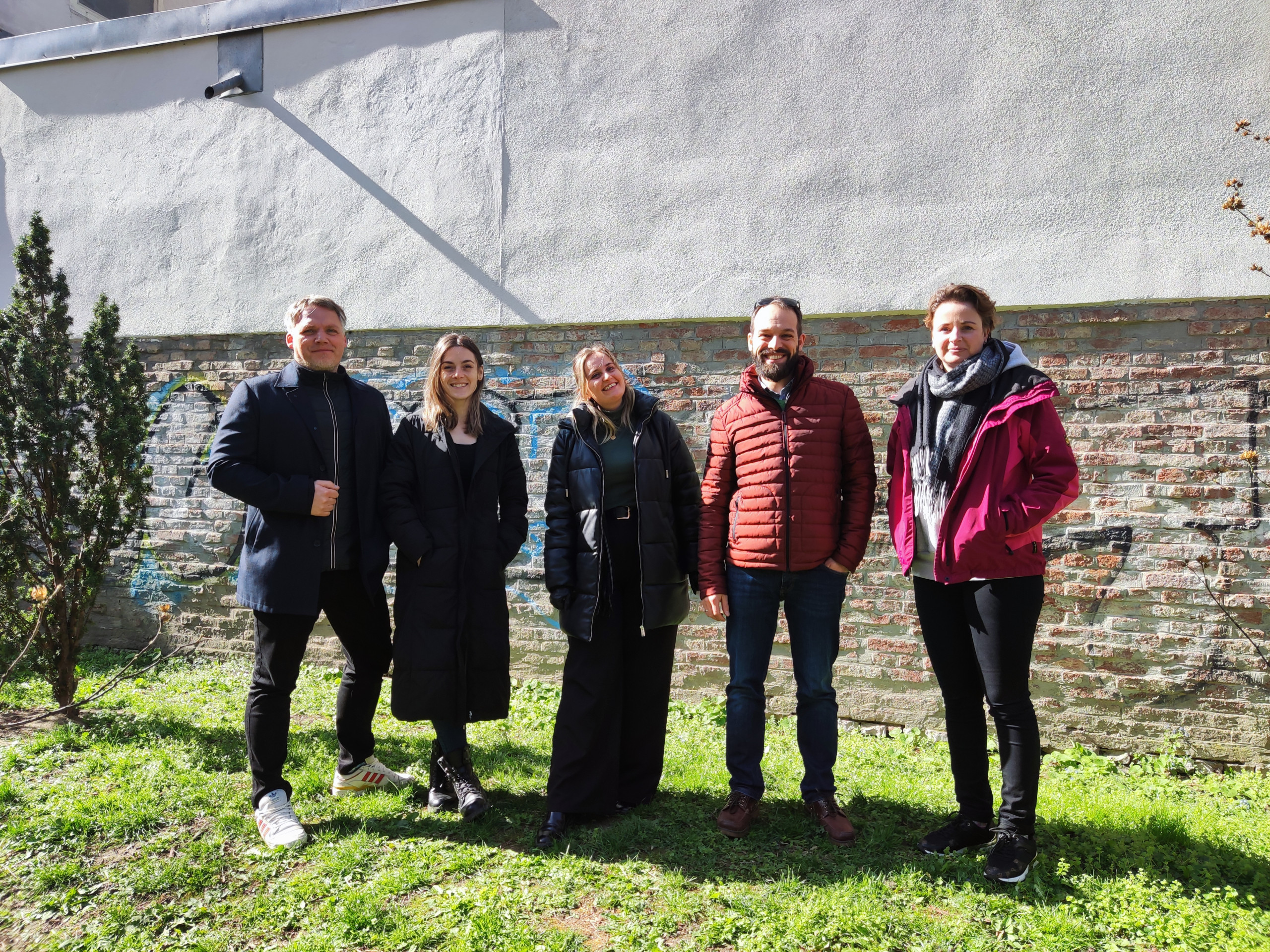
Project target groups
The target groups were:
- Trainers and Teachers of adults with disabilities
- Adult education institutes
- Disabled adults who are interested in upskilling themselves for acquiring entrepreneurial skills
PROJECT OUTCOMES
As part of this project, a modular curriculum was developed to provide trainers with basic skills and knowledge to effectively support people with disabilities and create an inclusive environment. The modules cover topics such as inclusive teaching and communication, empowerment tools and methods, entrepreneurship and self-employment for people with disabilities, and inclusive feedback tools and methods.
ModuleS
- Inclusive Teaching Strategies:
PDF (German) PDF (English) PDF (Greek) - Inspiration Empowerment:
PDF (German) PDF (English) PDF (Greek) - Opportunities:
PDF (German) PDF (English) PDF (Greek) - Understanding Disability:
PDF (German) PDF (English) PDF (Greek) - Business Plan:
PDF (German) PDF (English) PDF (Greek) - Collecting Feedback on Training:
PDF (German) PDF (English) PDF (Greek)
Projectpartner: ÖJAB (coordination), LABoom247 - Dr. Guttke, Kretzschmar & Linge GbR (Germany), Universal Education (Greece)
Project duration: March 2023 - March 2024
Project number: 2022-2-AT01-KA210-ADU-000097665
Funded by the European Union. Views and opinions expressed are however those of the author(s) only and do not necessarily reflect those of the European Union or the European Education and Culture Executive Agency (EACEA). Neither the European Union nor EACEA can be held responsible for them.
FAFO
Fast Forward Skilled Workers 4.0
The project "Fast Forward Skilled Workers 4.0" aimed to contribute to solving the European shortage of skilled workers. To this end, the successful model of the Austrian Young Workers' Movement (ÖJAB) for the (pragmatic) vocational skills assessment and development of migrant women was being prepared for the needs of regional SMEs in multimedia form and discussed and reflected upon in a community of practice with interested European adult educators and education policy-makers.
Project objectives
The objectives of the FAFO project were:
- Make visible the status quo and the EU-wide differences in the way competences are assessed and developed (in continuation of the Berlin Declaration on the Recognition of Competences of 2019 and the European Guidelines for the Validation of Non-formal and Informal Learning of 2016).
- The status 2023 of the various competence frameworks and "future skills" debates and put them in relation to practised competence assessment procedures.
- ÖJAB approach in a multimedia and digitally appealing way and thus bring it to the attention of a wider audience .
- Host an attractive 1-month online happening in autumn 2023 in the Erasmus+ Space on EPALE to bring together interested people and discuss the approaches.
- Long-term goal: Faster integration of migrants and women with atypical (employment) biographies into the labour market.

PROJECT TARGET GROUPS
The project was aimed at:
- Adult educators from all EU countries, to whom an alternative, creative good practice model is presented as an expert, in order to jointly search for education policy shortcuts on how to reintegrate people more quickly into the (struggling) labour market.
- Education policy-makers who are looking for creative, new approaches to meet the needs of the labour market more quickly.
Project partners: FROLLEINFLOW GbR - Institute for Creative Flaneurs - Coordinator (Germany), ÖJAB (Austria)
Project duration: March 2023 - March 2024
Project number: 2022-2-DE02-KA210-ADU-000095210
Funded by the European Union. Views and opinions expressed are however those of the author(s) only and do not necessarily reflect those of the European Union or the European Education and Culture Executive Agency (EACEA). Neither the European Union nor EACEA can be held responsible for them.
Future skills
Digital Competences for the Job Market
ÖJAB coordinated the Erasmus+ funded project FUTURE SKILLS that started in March 2022.
About The Project
The main aim of the project is to prepare young people from socially disadvantaged communities, from Austria and Hungary adequately for the job market of the future, putting a particular focus on the development of digital literacy and competences. Digital readiness and awareness of requirements will play a key role for young people in the future job market. On the other hand, several social skills such as communication skills, teamwork, commitment and motivation, stress resistance and resilience, etc. are becoming more important on the workplace as well. These two idea threads build the foundation of FUTURE SKILLS, a cross-border pilot project.
Projekt handbook (en, 13 MB)Project objectives
The objectives of "Future Skills" were:
- to provide a profound job orientation for youngsters from both partnering countries
- to provide an overview about content and requirements of IT/coding jobs on the Austrian and Hungarian job market
- for young people to develop soft skills that are necessary for the job market in general (communication skills, teamwork, commitment and motivation, stress resistance and resilience, etc.) within the scope of a Training Week
- to enhance cooperation between Austrian and Hungarian youth/educational organizations and IT/coding organizations in order to intensify collaboration in the future
The project targeted young people in the countries of the partner organisations,...
- ... who are interested in developing IT/coding skills
- ... who are between 15 and 18 years old
- with preferably fewer educational opportunities
Project partners: Austria (Coordinator) and Hungary
Project duration: March 2022 – March 2023
Bridge
Breaching Reservation and Improving Dialogue through Generational Exchange
Since March 2021, ÖJAB was involved in BRIDGE, an Erasmus+ funded project to strengthen intergenerational dialogue in youth work organizations.
Generational Exchange
The Erasmus+ funded project BRIDGE (Breaching Reservation and Improving Dialogue through Generational Exchange) was about promoting intergenerational dialogue in International Youth and Youth Social Work among professionals. In concrete terms, this means promoting mutual positive influence and "learning from each other", identifying the strengths and potentials of young and experienced youth and social work professionals, using these strengths together and finally anchoring the learning outcomes structurally in the organization.
In international youth and youth social work, teams are often characterized by a heterogeneous composition with regard to the age of the professionals, among other things. On the one hand, this diversity is an important enrichment for the work, but on the other hand, it also brings challenges for the cooperationEach generation brings its strengths and experience, which must be utilized, preserved, and dovetailed with one another. At the same time, it is important for many organizations that the knowledge of the baby boom generation, which will soon be retiring, is also available to the following generations. Therefore, a successful intergenerational exchange is an important issue in order to (continue to) work successfully.
First Training Course of BRIDGE Project
Building Bridges between Junior & Senior Workers and Identifying Potentials & Tools
The first Training Course of our BRIDGE project was held at the beginning of November 2021 in Bologna, Italy. To ensure balanced participation, nine tandems of Junior and Senior youth workers from partner organizations took part in this workshop composed of plenary sessions and group work. Participants spent almost three days together brainstorming, discussing and exchanging ideas on the strengths of Junior and Senior workers and how they can learn from each other. A particular focus was to identify key soft skills and discuss whether they are more common among Junior or Senior workers or both. This discussion led to the creation of knowledge maps by small groups around specific competence/skills to visualize the process of transferring them from Senior workers to Junior workers and vice versa.
This workshop witnessed fruitful suggestions for creating a common data-gathering tool to raise awareness on intergenerational dialogue. Through this tool, each partner organization will collect additional information to get a broader European perspective on the topic and reach more Junior and Senior workers.
Last but not least, participants had a great time getting to know “the learned, the fat and the red” city, Bologna. We thank GioNet for organizing and leading this workshop!
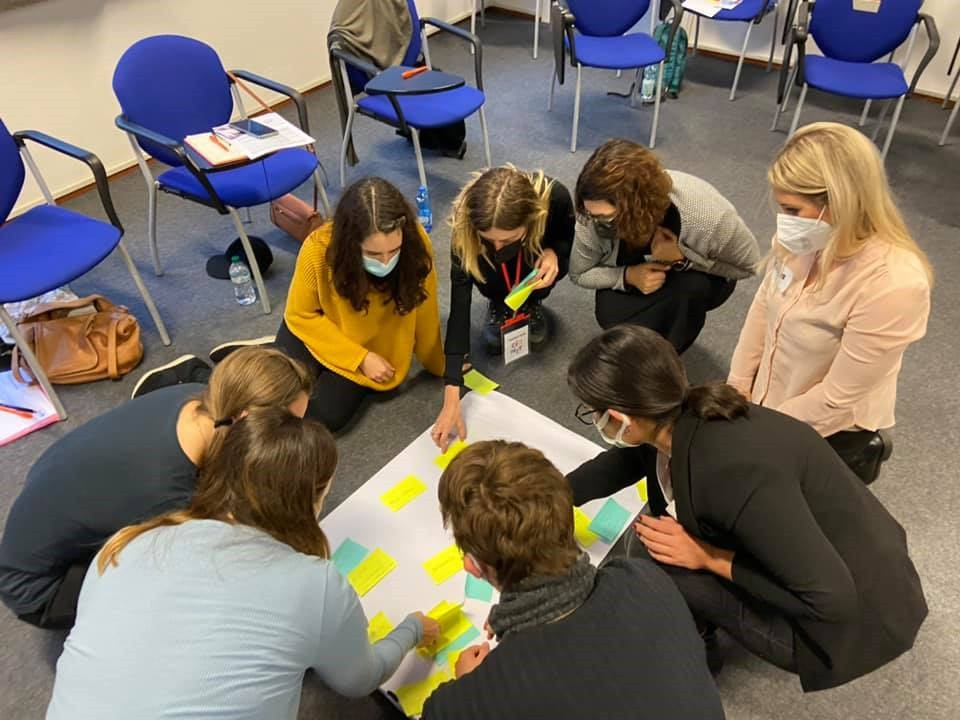
second Training course in Örebro, Sweden
In April 2022, the second training course within the project BRIDGE took place. Senior and junior youth workers from six partner organisations in Austria, Germany, Italy, France, and Sweden gathered in Örebro, Sweden, to exchange and discuss various methods of knowledge transfer and management necessary for a smooth integration into a new workplace.
Thanks to the carefully planned activities of the training, the participants had the opportunity to analyse provided methods and identify the most efficient ones based on their own experiences, while taking into account the specific needs of both groups involved.
The constructive recommendations on how and when to use certain methods, and also on how to improve them, lay a very solid ground for drafting a handbook of methods which will be available for a broader community after the project has been finalised.
Besides the formal contents of the training course, team-building activities took place. Thanks to ACTIVA, the partner organisation from Sweden, and their great organisation of the training, the participants got to know the city of Örebro more profoundly, while giving them an insight into the local community’s social work.
Framework concept Annex (750 KB)Framework concept (660 KB)Project Handbook (1 MB)recommendations (715 KB)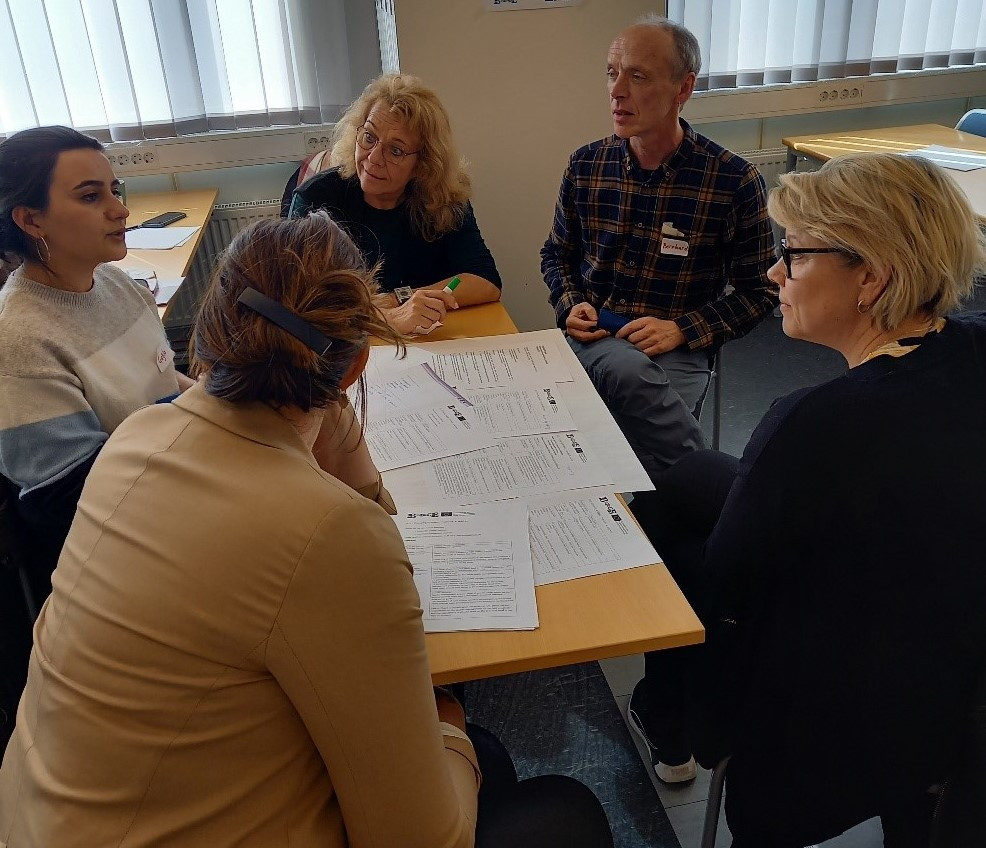
Project partners: Germany (coordinator), France, Sweden, Italy, Austria
Project duration: March 2021 to August 2023 (30 months)
Project website: www.internationaler-bund.org/en/bridge
VOICE
Photovoice - Participation & Empowerment in Youth Work
ÖJAB was involved as a project partner in the Erasmus + funded youth project VOICE since May 2021. VOICE focused on using Photovoice's innovative and creative approach to empower youth workers, future youth workers and young people across Europe.
Methodology
The VOICE project focuses on using the innovative and creative approach of Photovoice to empower youth workers, future youth workers and young people around Europe. It built on our successful implemented project YourEP and its follow up Europe3E, which we wanted to adapt to the international youth work context. Photovoice (and abbreviation of “Photos Voicing Our Individual and Collective Experience”) is an innovative creativity-boosting method used to share personal stories supported by photos. It aimed to enable people to record and reflect their community's strengths and concerns, promote critical dialogue and knowledge about important issues through large and small group discussion of photographs, and to reach policy makers.
Tutorial Video about the project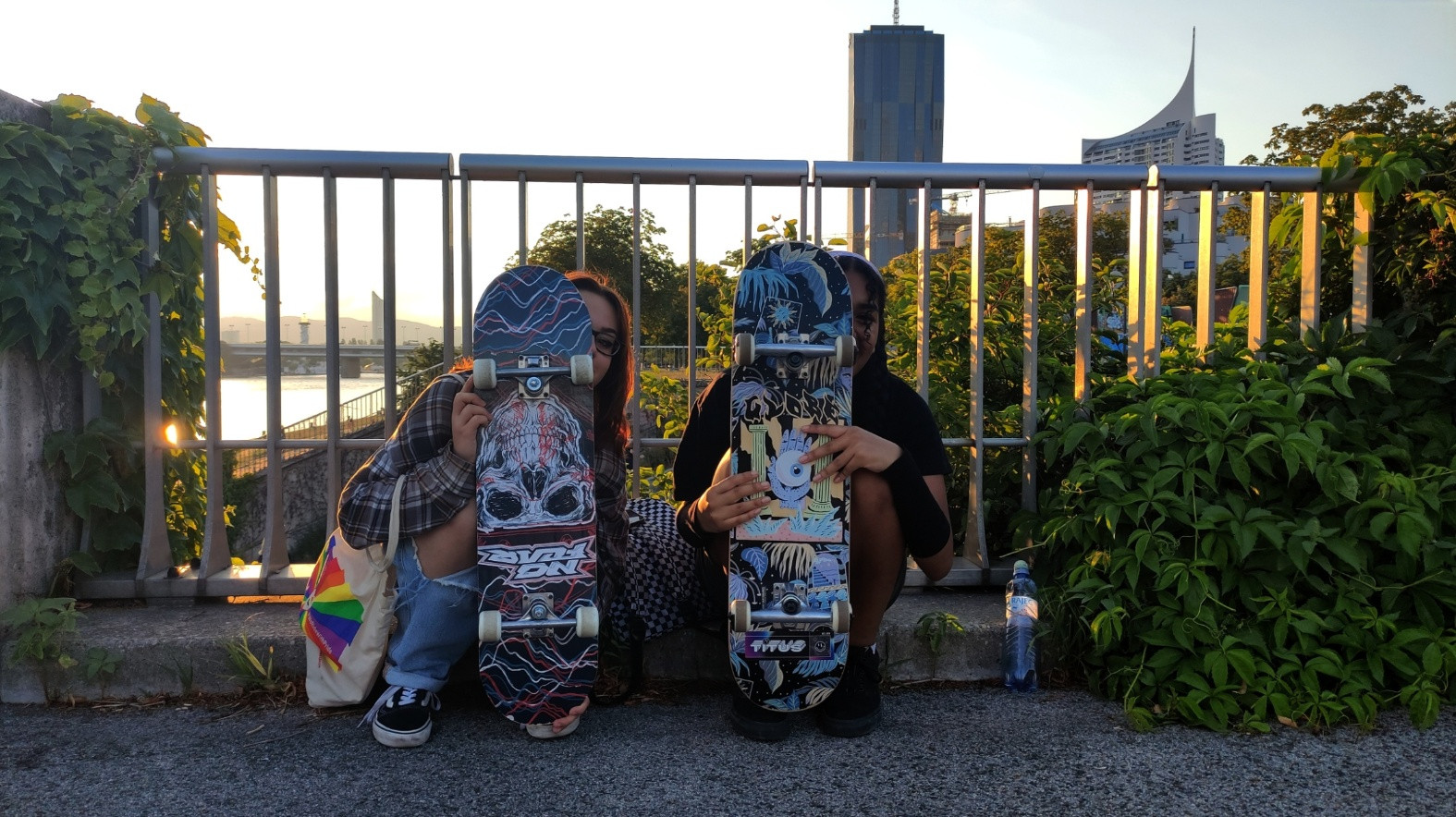
Objectives
By bringing together future and current youth workers, young people and creative organisations (eg. photographers and graphic designers), the VOICE project aimed at promoting the method of Photovoice in youth work, to make it more recognized as a creative tool that future and current youth workers can use to promote social inclusion, engagement and active citizenship of young people.
Results
VOICE had a positive and long-lasting impact, by equipping social and youth work students, as well as youth workers with new creative methods to work with young people. The expected direct impacts of the Intellectual Outputs described above were an increase of the quality of youth work using innovative and creative approaches, and the training of future youth workers to get familiar with Erasmus+ and international youth work. Additional positive outcomes were to foster a creative dialogue with young people, enable them to voice their ideas and develop entrepreneurship and creative skills.
Project partners: Germany (coordinator), Netherlands, Bulgaria, Italy, Austria
Project duration: May 2021 to April 2023 (24 months)
VOICE Results FlyerThe European Commission support for the production of this publication does not constitute an endorsement of the contents which reflects the views only of the authors, and the Commission cannot be held responsible for any use which may be made of the information contained therein.
GECCO
Green Environmental Climate Care Orientation
Awareness of environmental issues such as environmental justice and the consequences of ongoing climate change are of utmost importance for young people aged 13-15. Nevertheless, many young people lack an understanding of how they can, on the one hand, use the environment in an ecologically sustainable way in their free time (e.g. when playing sports) and, on the other hand, contribute to reducing their ecological footprint and do something about climate change.
Finding solutions to climate change requires a joint effort of several countries across Europe. The project should therefore promote the idea of intercultural cooperation to combat climate change through the engagement of young people.
The project was divided into the following contents:
- Development of a programme/curriculum for a Green Camp for young people
- Running a 1-week Green Camp for 20 young people
- Development of a mini-manual based on the camp experience
- Dissemination of the project and the manual in both partner countries
Overall objective
- Encouraging young people to shape their local natural environment and combat climate change through a joint, cross-border effort.
Specific objectives
- Development of self and group effectiveness in adolescents aged 13-15 years
- Acquiring the knowledge and skills young people need to protect and care for their local environment
- Understanding the natural life cycle through science lessons and experiments
- Promoting language learning and exchanges between young people
Project partners: Austria (coordinator), Netherlands
Project duration: March 2022 to February 2023
Mental health
Mental Health of Youth in the Post-Corona-Time
This project aimed to establish and further develop a network of (social) youth work organizations addressing mental health issues of young people, as well as youth and social workers.
The project focused on creating a framework for collecting more information on the following aspects directly related to the issue of physical and mental well-being in youth work:
- The impact and consequences of psychological stress for young people (in Europe).
- Gathering information on the psychological impact of the Corona pandemic on young people, with a particular focus on socially disadvantaged young people and youth and social care workers.
- What practical solutions already exist in youth work?
- What opportunities are there to work preventively in youth work to promote resilience and capacity building?
- What youth work methods can be used?
- What other requirements are there in relation to the situation of young people, youth workers and youth work organizations?

Evaluation
The results of the work processes and evaluations carried out, were designed as concrete recommendations on how youth work can respond to the challenges caused by the mental health of young people, especially in the post-Corona-period.
In addition, the focus was also on the organizational level, providing recommendations to youth organizations on how to support their staff in the challenges they face in their daily work, thus developing the quality of youth work.
It aimed to build a knowledge base about child and adolescent mental health on the one hand, and existing or missing support systems among professionals and their organizations on the other. The institutionalization of support for youth work professionals was another desirable goal of this project.
The target groups of the project were:
- professional youth workers
- youth organizations
- (indirectly) young people from socially disadvantaged backgrounds who use the services offered by the project partners.
Emphasis:
One focus of the project was to organize and conduct local and international workshops that will lead participating partner organizations and participating youth workers to a deeper understanding of youth mental health. It also involved local and international exchange on approaches and methods that can be applied in youth work practice to better support young people and also to strengthen youth work itself.
EUPTRAIn
Transnational Knowledge Exchange between Trainers of low-skilled Adults in multiple European Countries
The objective of EUpTrain is to create a transnational network between Austria, Hungary, Bulgaria, Italy, Portugal, Greece and Romania in order to share Europe-wide knowledge between organisations specialised in adult education through exchange of experts and the development of a sustainable handbook comprising transnational good practices and methods for trainers working with low-skilled adults. The target group of this project are trainers of low-skilled adults, with at least 2 years of working experience.
EUpTrain activities include:
- 3 transnational project meetings attended by a total of 16 experts
- one knowledge exchange workshop with the main goal to filter out examples of good practices from all participating organisations and to show international differences, new opportunities, new ways of work and different methodologies in training of low-skilled adults
- based on the workshop results: creation of a handbook containing 16 best practices and 8 methodologies
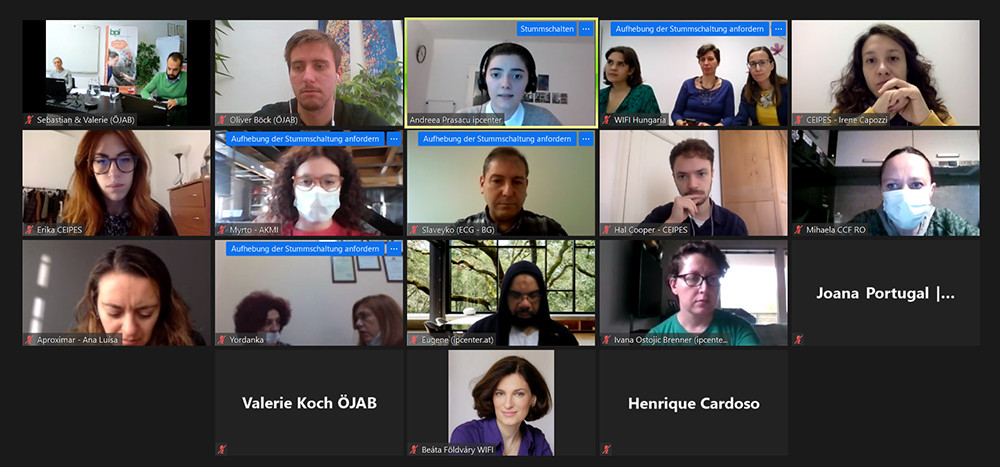
Project exchange in Portugal
From 8 to 12 November 2021, 26 adult education trainers from a total of 7 countries came together in Amadora, Portugal for a knowledge exchange. Working with low-skilled adults poses challenges for all of them in their daily work. The workshop offered space and the opportunity to exchange and learn from each other about helpful ways of working, methods and didactics. A visit to AFID, an organisation that works with adults with special needs, also opened up new perspectives.
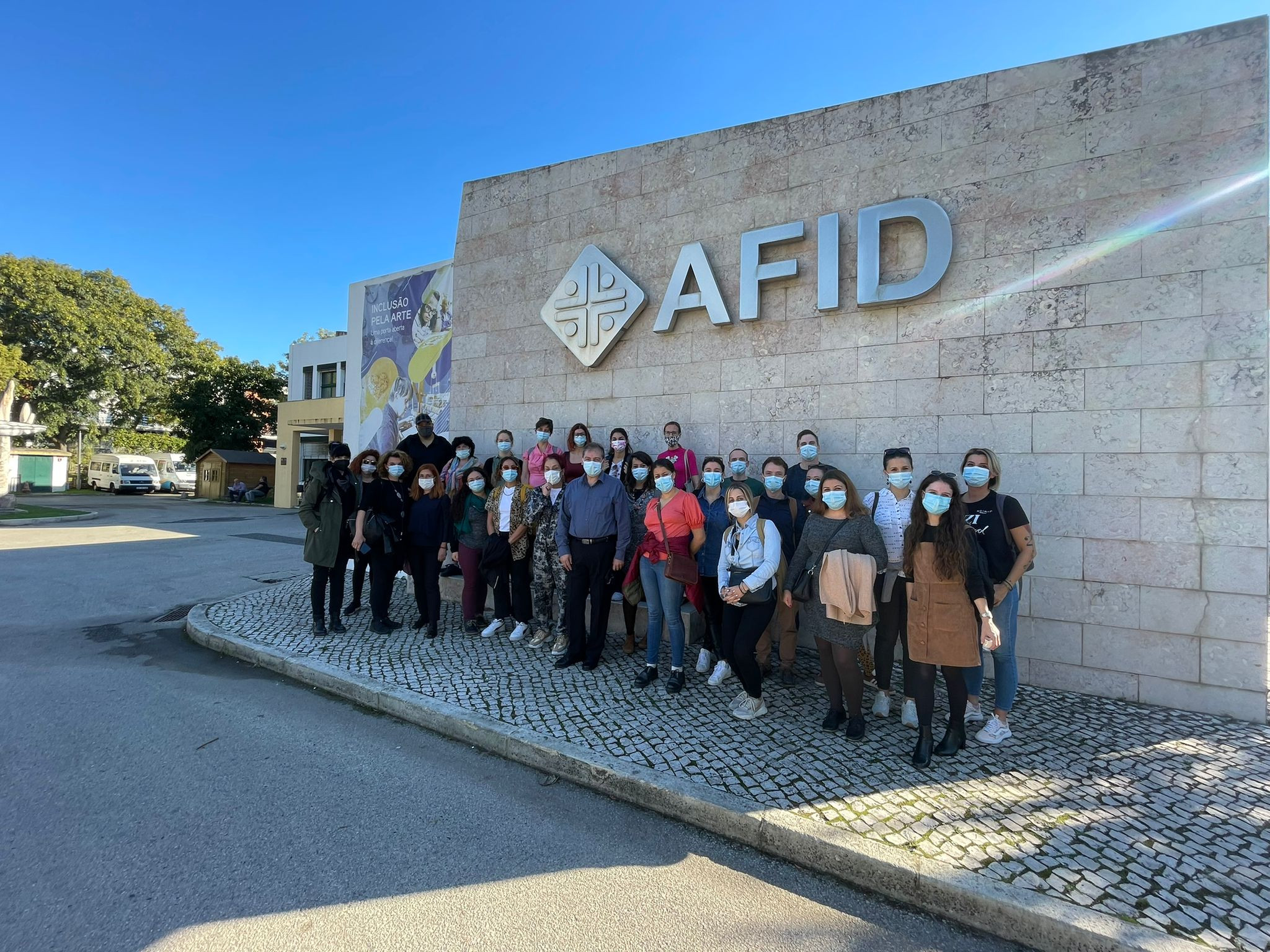
Project partners: Austria (coordinator), Hungary, Bulgaria, Italy, Portugal, Greece and Romania
Project duration: October 2020 to March 2022
The European Commission support for the production of this publication does not constitute an endorsement of the contents which reflects the views only of the authors, and the Commission cannot be held responsible for any use which may be made of the information contained therein.
COMPASS
Career cOnsulting and Mentoring skills caPAcity building for youth workerS working with NEETS
ÖJAB was a partner in the Erasmus+ project COMPASS from November 2019 to October 2021.
This project aimed to improve youth work’s impact on the education of NEETs while also placing a focus on NEETs’ labor market integration.
The immediate outcome of this project was a training program focused specifically on developing youth workers’ soft skills. The intent was to integrate specific knowledge and skills that are necessary for the successful career advising and mentoring of NEETs.
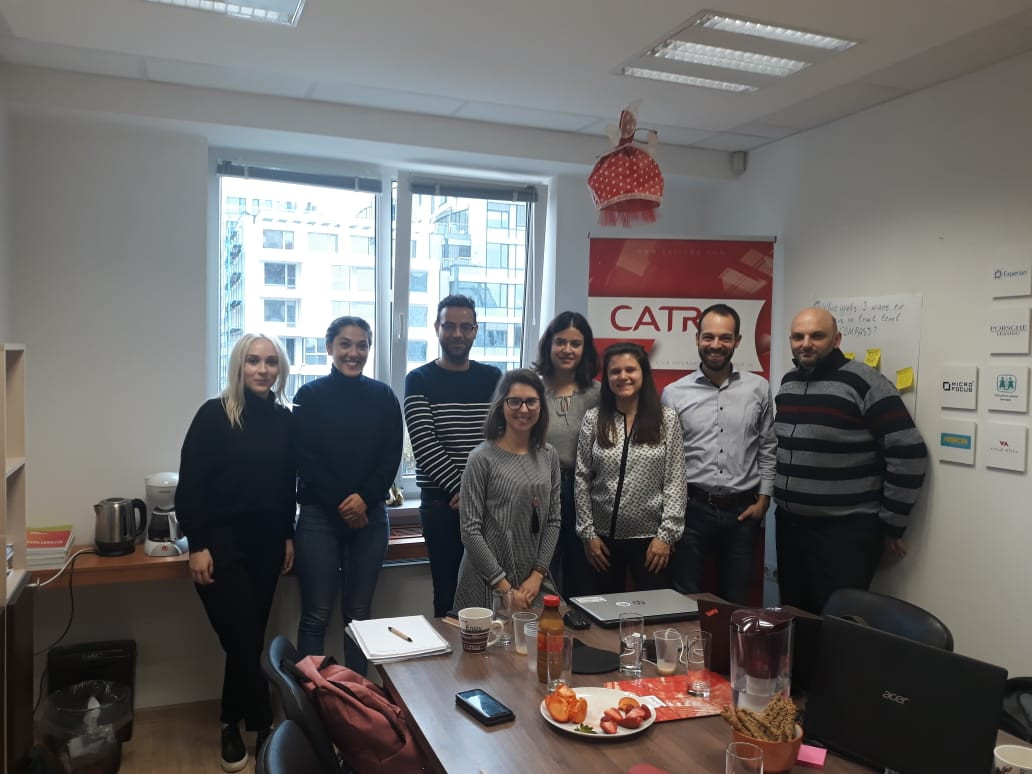
Compass Newsletter
Newsletter Nr.1 (Englisch, PDF 1MB)Newsletter Nr.2 (english, PDF 602 KB)Newsletter Nr.2 (Englisch, PDF 509 KB)Newsletter Nr.3 (Englisch, PDF 514 KB)Newsletter Nr. 5 (Englisch, PDF 6 MB)Project partners: Bulgaria (coordinator), France, Greece, Spain, Romania, Austria
Project website: www.compass-eu.org
Project duration: November 2019 to October 2021
Europe through young eyes
Exchange, Explore, Exhibit
ÖJAB was a partner in the Erasmus+ project Europe through Young Eyes from November 2019 to Juli 2021.
This project aimed to cultivate meaningful active citizenship, raise political awareness, and deepen social inclusion among youth.
This project’s objectives were achieved via the following measures:
- connecting young people’s lives with Europe on the personal level
- using the photovoice method (participative photography) to give rise to creative and integrative interaction with “Europe” as a theme
- using a simulation to render Europe more tangible
- participants’ research and exploration on Europe’s influence at the local and transnational levels
- participants’ development of recommendations for EU policy
- development and publication of strategies for disadvantaged young people
As part of this project, disadvantaged young people were provided with an opportunity to get to know Europe and its institutions better.
Europe: Project Online exhibition How To PhotovoiceHow to involve all youth in the european Projectfinal Recommendations
Projektpartner: Deutschland (Koordinator), Griechenland, Frankreich, Niederlande, Großbritannien, Österreich
Projektdauer: November 2019 bis Juli 2021
Projektwebsite: www.yes-forum.eu
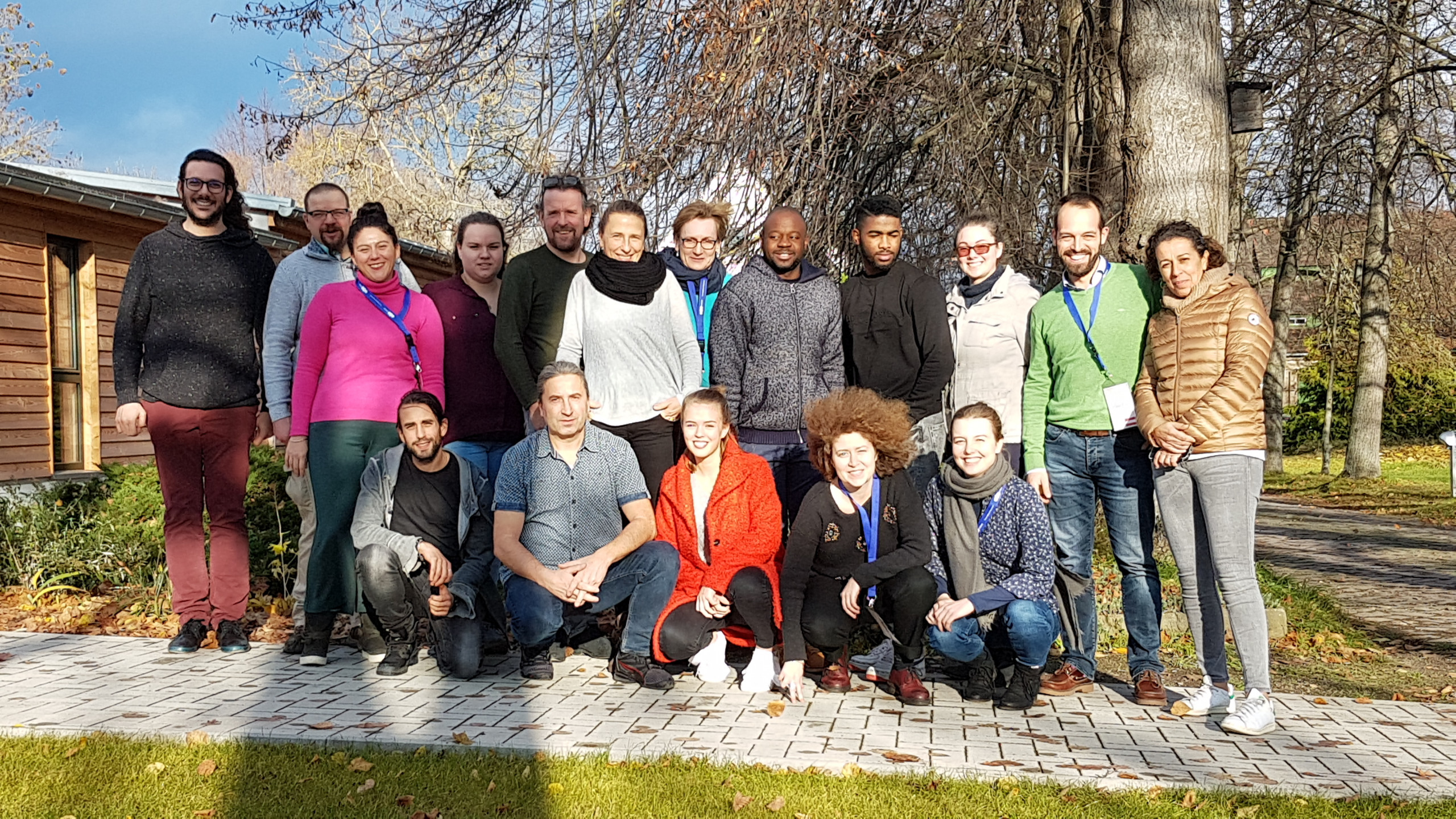
MOBILNA PREŠERNOVA
A Mobility Project of the Economics and Business School Ekonomska šola Ljubljana & Europass Mobility – an important EU Certificate – www.oejab.at/mobilnapresernova
Each year from 2017 to 2019 10 enthusiastic school students from various classes at the secondary and grammar school Ekonomska šola Ljubljana (School of Economics Ljubljana) completed three-week internships at various ÖJAB institutions and subsidiary enterprises, including at the residence and nursing home ÖJAB-Haus Neumargareten, the occupational training institute BPI der ÖJAB – Ausbildungszentrum Wien, the ÖJAB Head Office, the education, conference, and event center Europahaus Wien, and the myNext hostels, hotels, and apartments.
The objective of this mobility project, which is conducted as part of the Erasmus+ program, was to link students’ theoretical knowledge relating to office and administrative work with practical experience through their activities at ÖJAB institutions while also helping to cultivate the students’ social skills via their experience of a new working environment.
ÖJAB, as the hosting partner organization, organized and coordinated the Slovenian group’s stay in Vienna. This included arranging their accommodations, sustenance, internship positions, and cultural activities. ÖJAB also monitored and evaluated the students’ internships along with preparing their Europass and ÖJAB certificates.
The school students were accommodated at the dormitory ÖJAB Europahaus Dr. Bruno Buchwieser and provided with meals by the adjacent education, conference, and event center Europahaus Wien. Their educational program in Vienna was complemented by cultural activities including city walks and tours of various sites accompanied by ÖJAB volunteers. And on the program’s final day, all participants received the important EU certificate “Europass Mobility”, which documented not only their stay abroad but also the skills acquired during this stay.
In 2017 and 2018, Ekonomska šola Ljubljana produced a short video that presents some impressions of this project.
Project partner: Ekonomska šola Ljubljana, Slovenia (coordinator); ÖJAB, Austria (project partner)
Project duration: 3 weeks
This mobility project was supported by EU funds as part of the Erasmus+ program; increasing student mobility is one of the objectives of Erasmus+.
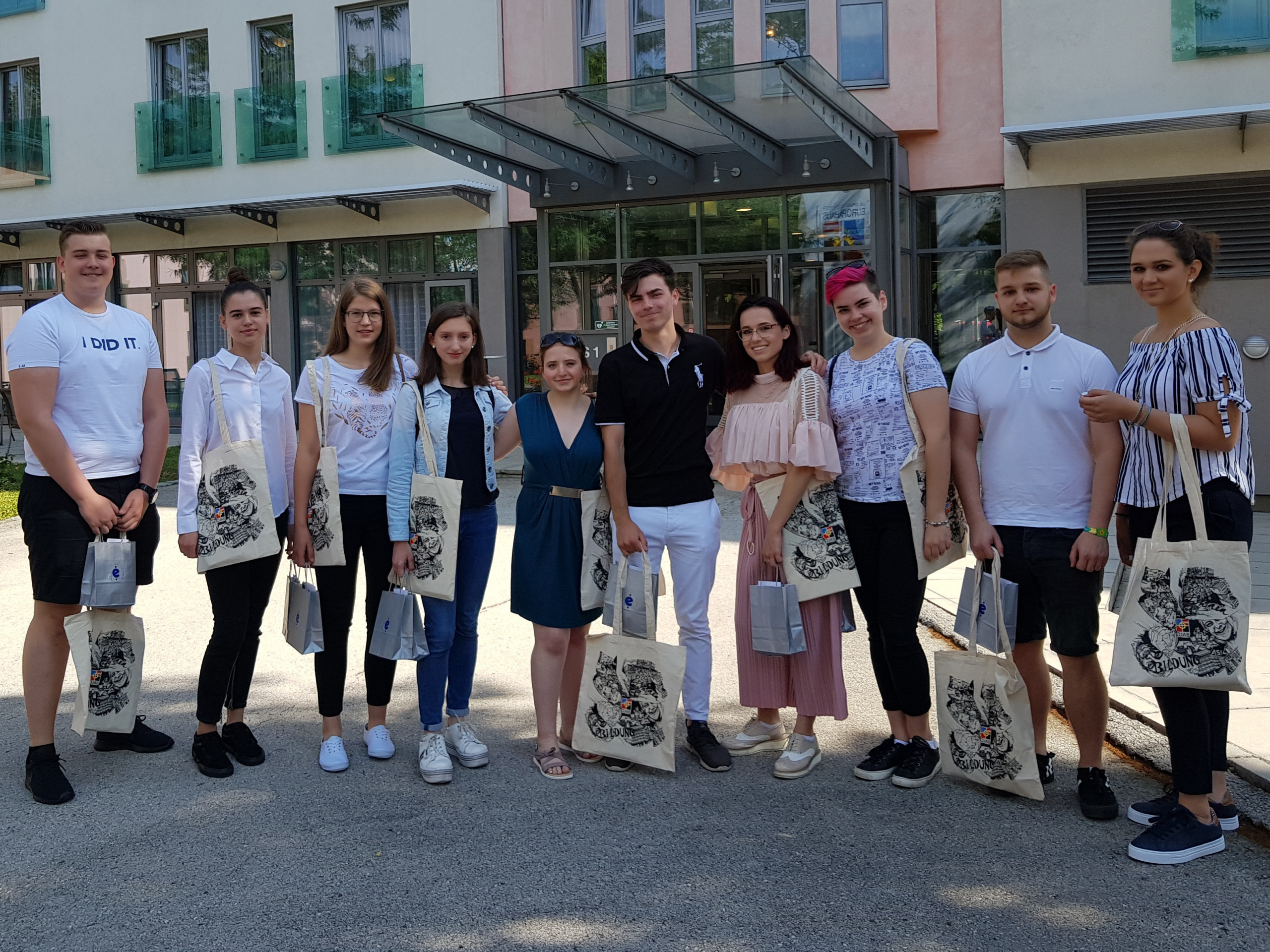
DROPs
Drop Out Prevention Skills
ÖJAB was a partner in the Erasmus+ project DROPS from September 2019 to September 2020.
The objective of this project was the exchange of experience between youth education organizations on dropout prevention-related themes. The longer-term goal here was to improve the social skills of teachers and trainers who work with groups of at-risk youths (NEETs = Not in Education, Employment, or Training).
Apart from that, the project focused on preparing educators not only to teach vocational subjects but also to function as educational and social advisors. They are to be equipped with the skills necessary to motivate students to take part in class and complete their training, with the ultimate goal being to lower the dropout rate over the long term.
In order to achieve the best possible results in this respect, various types of educational institutions were included in this project.
Project partners: Czech Republic (coordinator), Slovakia, Sweden, Austria
Project duration: September 2019 to September 2020
Final recommendation (Englisch, PDF 200 KB)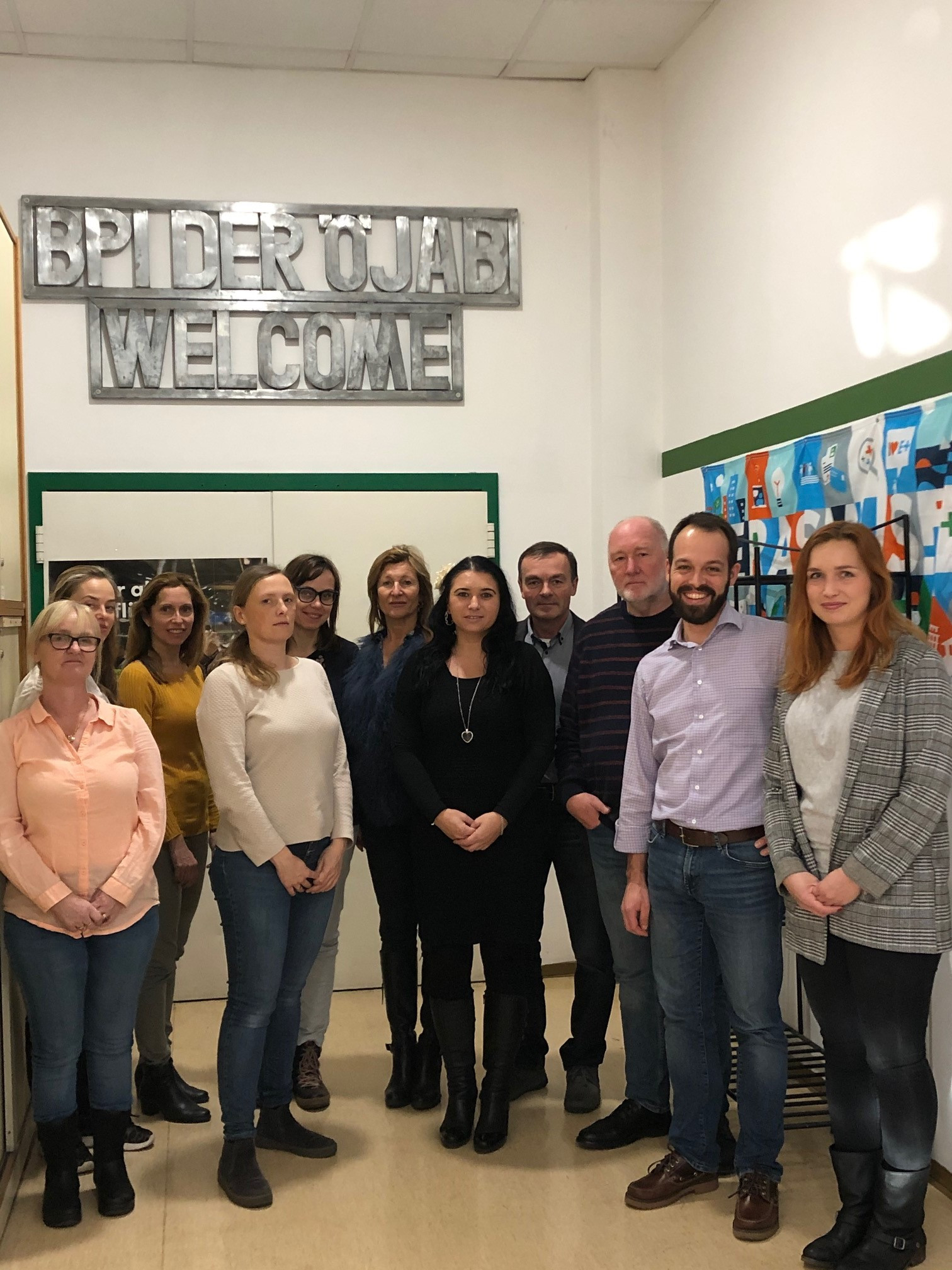
YOUTH workers 2.0
Advising and Schooling of Youth Workers all over Europe in the Use of ICT Tools (Information, Communication, and Technology Tools = PCs, Laptops, Software Programs, Printers, etc.) and Digital Working Methods.
From November 2018 to June 2020, ÖJAB was part of the Erasmus+ KA2 project “Youth Workers 2.0”. This project aimed to expand upon youth workers’ digital skills in order to improve the fundamental training of those who work with young people.
Two surveys were conducted as initial steps toward achieving this project’s objectives. One of the surveys addressed the direct target audience of youth workers, while the other addressed the indirect target audience of young people with low qualifications.
The findings from these surveys were used to compile a report that analyses existing needs. This report serves as background information upon which further employment-related studies for youth can be based.
The information thus collected is used to compile guidelines containing proven procedures with which to support youth workers’ daily efforts. These guidelines serve to inspire all of their readers and support them in their future work.
Project duration: November 2018 to June 2020
Project partners: Spain (Coordinator), Austria, Romania, Hungary
Project website: https://youthworkers2-0.eu
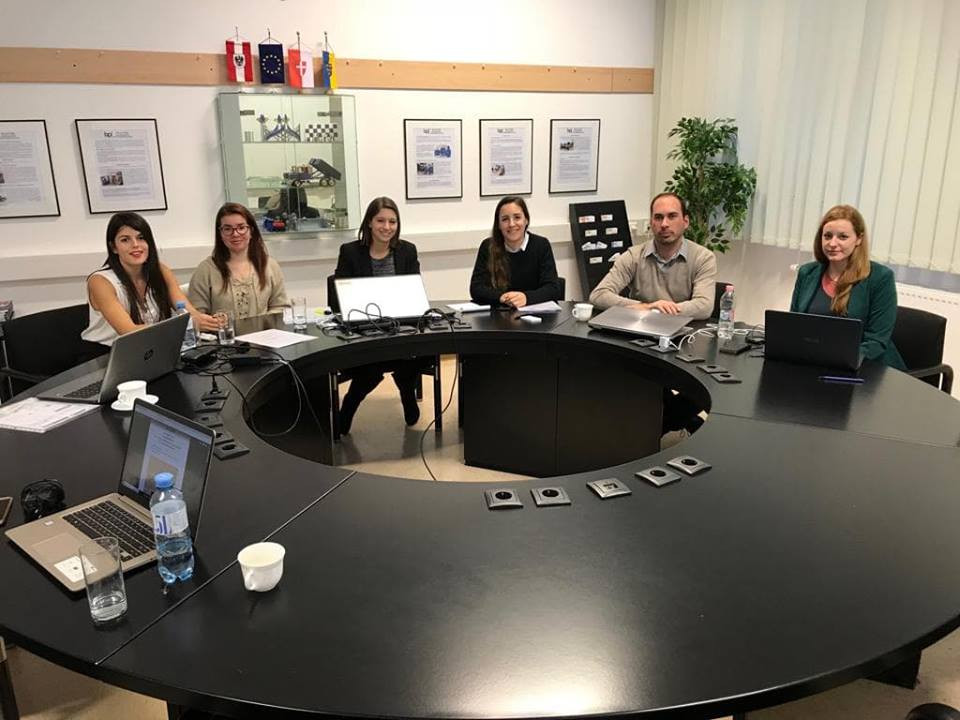
ALMIT
From January 2018 to June 2020, ÖJAB was a partner in the project “ALMIT” (Acceleration of Labor Market Integration of Immigrants Through Mapping of Skills and Trainings). This consortium included a further eight partners from Bulgaria, Serbia, and Turkey.
The core idea of this project was to develop an innovative model for ascertaining the skills of migrants and refugees, thus making it possible to support this target group’s swift integration into the labor market.
The ultimate objective was to ensure both high-quality and sustainable employment as well as fair social protections, to combat social exclusion and poverty among migrants and refugees, and to improve the conditions under which members of this target group work.
This project was divided into a total of seven work packages. In these, activities including the following werecarried out by the project partners:
- Development of an online language course including its curriculum and learning modules
- Compilation of civil society-related and intercultural course materials
- Pilot runs of the developed courses including their course materials
- Compilation of a “train-the-trainer” handbook
- Creation of an E-learning platform
- Guidelines for labor market policy regulations
- SWOT analysis relating to this project’s theme in the partner countries
- Matching with companies
- Publication including final conference in Vienna
All phases of this project involved close collaboration between ÖJAB and the other project partners. And for one of the work packages, ÖJAB was the responsible contact for the other partner countries. This work package had to do with compiling information on local labor market rules and trends as well as on rules pertaining to social assistance, cataloging of the target groups’ educational backgrounds and work experience plus compiling profiles that detail refugees’ skills, and ascertainment of current labor market demand.
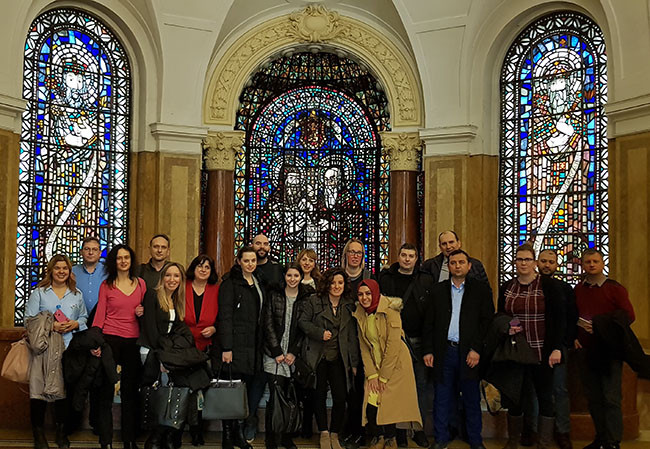
Project partners: Bulgaria (coordinator), Serbia, Turkey, Austria
Project duration: January 2018 to June 2020
Project website: almit-project.eu
IAMHC
Innovative Approaches and Methods for Home Caregiver
IAMHC aimed at improving the collaboration between similar organizations in Europe as well as exchanging proven procedures relevant to (home) caregiving and caregiving personnel.
Nursing and health services on the European level
From December 2018 to November 2020, ÖJAB was a partner of the Erasmus+ project “Innovative Approaches and Methods for Home Caregiver”. This was ÖJAB’s first European project devoted entirely to the topic of nursing and health services.
This project aimed to improve collaboration with similar organizations all over Europe and to exchange proven practices with regard to home caregiving. This was accomplished by building an international network that made it possible to quickly exchange information and adapt to new trends.
Specific objective
Supporting the quality of care and the security of individuals who live in long-term care facilities, doing so in a manner and in an environment that upholds or enhances the dignity and respect accorded to every single resident while fully acknowledging his or her individuality.
Activities
- Transnational meetings for the exchange of proven practices relating to home caregivers and home care.
- 5-day “Best Practice” training session
- Organization and conduct of local focus groups sessions and debates
- Compilation of a catalog containing the best home care methods, experiences, and concepts.
- Activities to disseminate these proven practices.
- Members of the project at the kickoff meeting in Mesagne, Italy
- Kickoff meeting in Mesagne, Italy
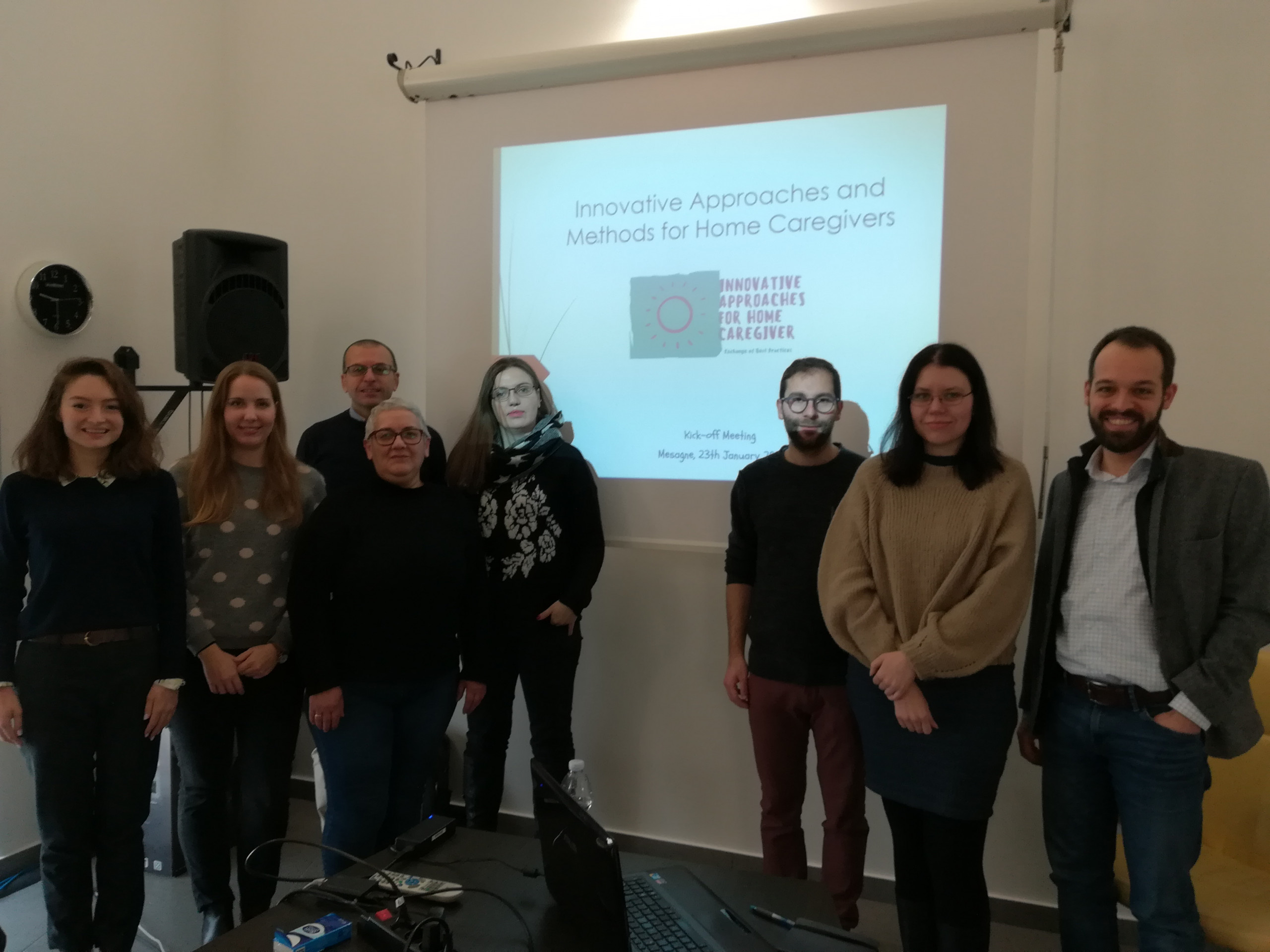
Documentation
Home Care - Final Catalogue (English, PDF 18 MB)Statement
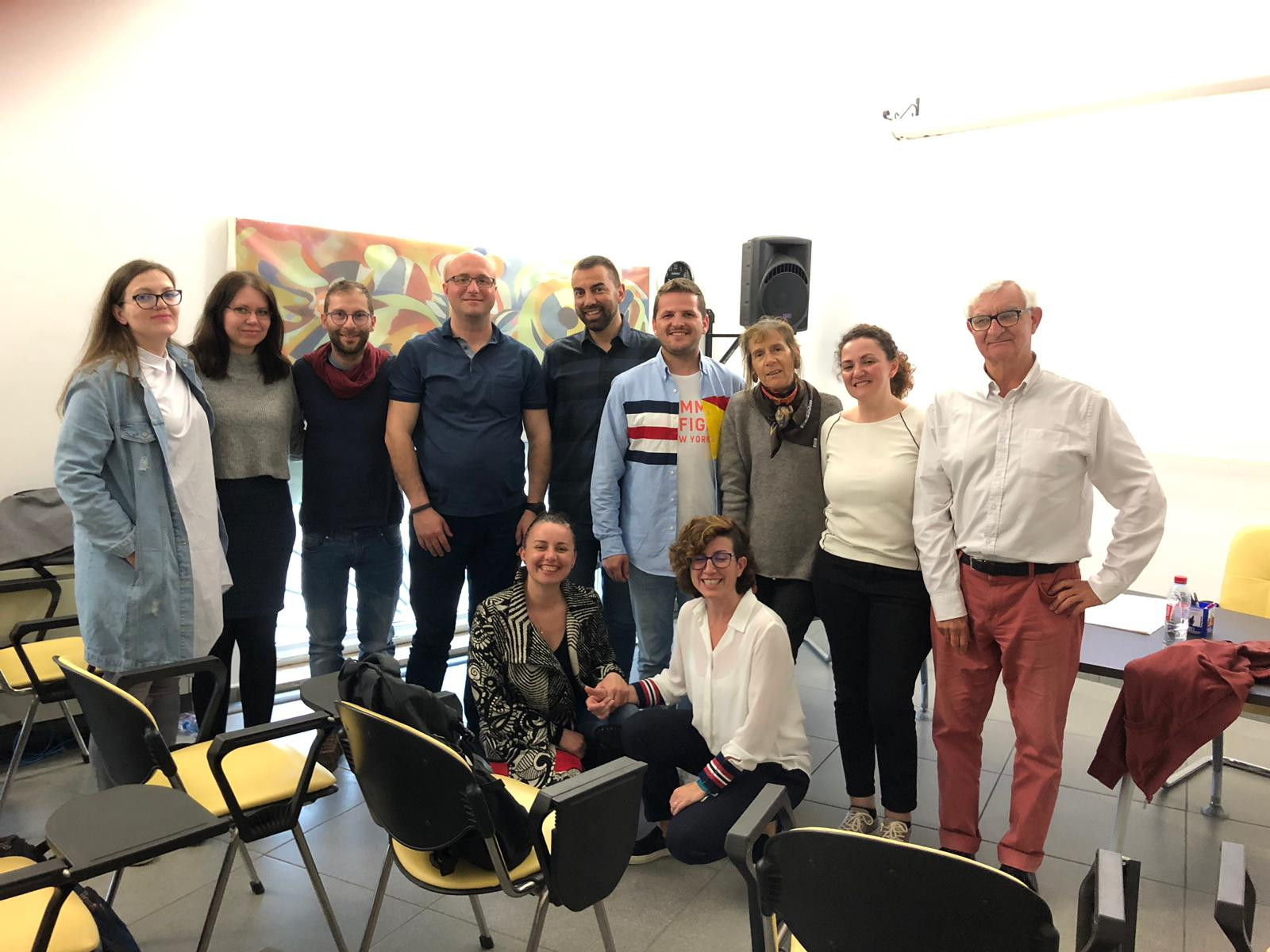
COUNTER HATE
Supporting Youth Workers in the Fight against Online Hate Speech.
From October 2018 to January 2020, ÖJAB participated in the project “Counter Hate” as part of a consortium together with three organizations from Latvia, Spain, and Bulgaria.
The objective of this project was to equip youth workers with the skills and knowledge that are needed in order to develop tools and arguments with which to counter online hate speech.
Specifically, “Counter Hate” concentrated on supporting high-quality efforts to provide all youth workers with the abovementioned knowledge and tools as they pertain to online hate speech against migrants and refugees. These prevention skills were expanded upon in the form of custom-tailored responses, counter-narratives, and awareness-raising campaigns.
The project partners’ ranges of activities included the following components:
- Project survey and publication of a project survey report
- Development of an E-learning course
- Compilation of digital guidelines
- Local workshops
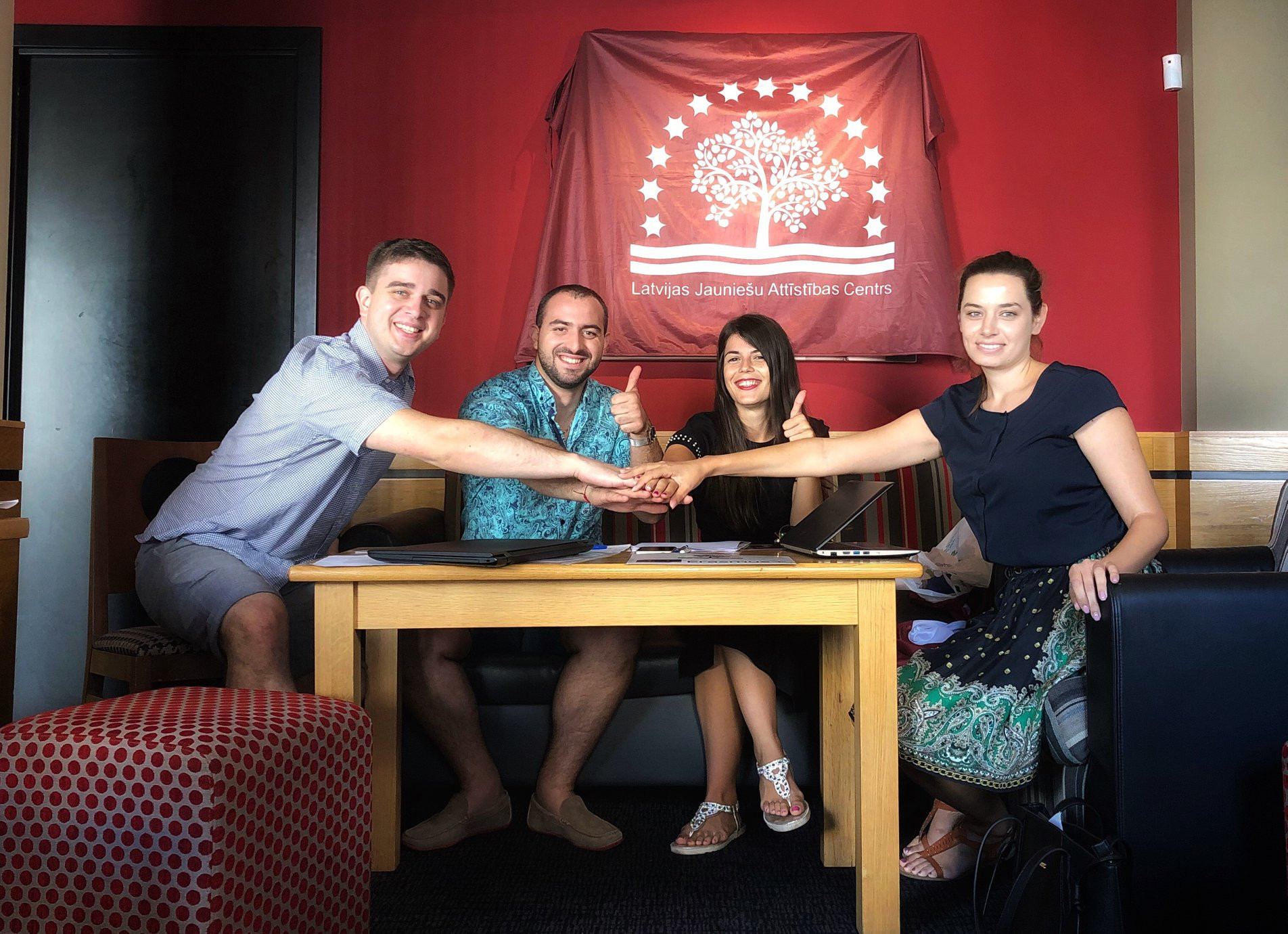
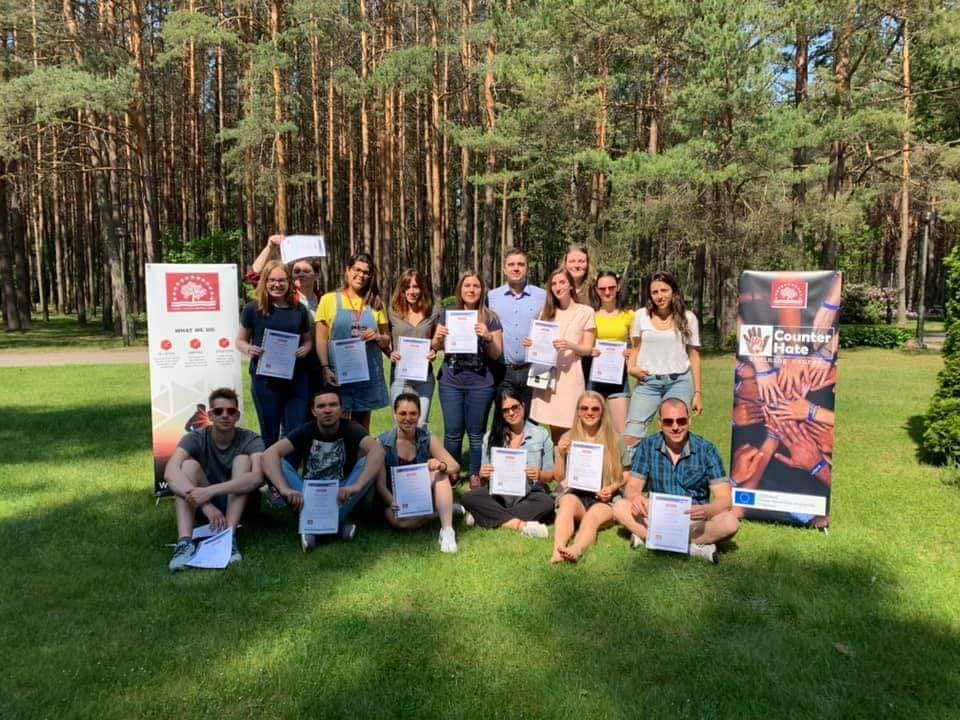
Project partners: Latvia (Coordinator), Spain, Austria, Bulgaria
Project duration: October 2018 bis January 2020
Project website: http://counterhate.eu
Volunteers 4 All
This Project helps Volunteers in NGOs to develop Social Skills.
Volunteers 4 All was a 20-month European project, co-funded by the European Commission's Erasmus + (KA2) program, which aimed to help youth workers and NGO volunteers develop new social and digital literacy skills in their day-to-day work need to address the refugee crisis in Europe. This project, in collaboration with four project partners, focused on promoting quality youth work in the social and digital sectors.
In the project, an e-learning training was developed to familiarize volunteers with the possibilities of digital media, to get involved, to tell a story, to understand events, to create awareness and to bring about change.
In addition, a digital guide was compiled, in the form of a series of learning materials as open educational resources.
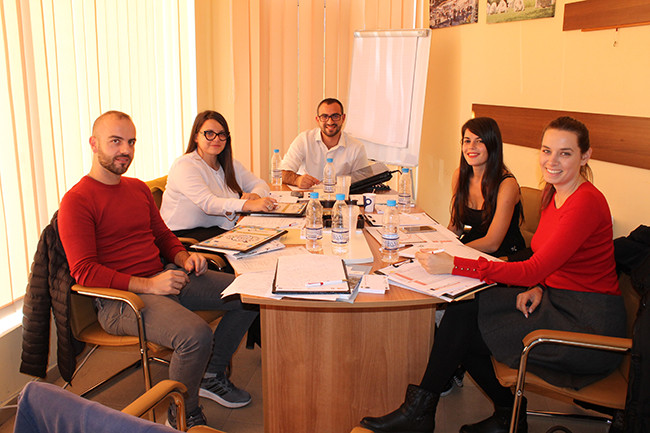
Project partners: Alternativi International, Bulgaria (Coordinator), PROJUVEN, Spain, Futuro Digitale, Italy, ÖJAB
Project duration: October 2017 to May 2019
Involve
The Erasmus + KA2 Project aimed to Support further Development and Strengthening of Volunteerism.
Training for volunteers was improved and, thus, the work efficiency of the organizations increased. The project aimed to eliminate or minimize the following problem areas:
- Decreasing motivation over time due to changing responsibilities and responsibilities
- Lack of self-assessment in mental stress, revision, etc.
- Inadequate conflict strategies in conflicts with the people being supported, with other volunteers or with supervisors.
INVOLVE aimed to create awareness of the value and benefits of soft skill training for volunteers as well as to deepen the methodological knowledge of these training efforts. In addition, the subject-specific knowledge of volunteers was strengthened according to the needs of the individual partner organizations.
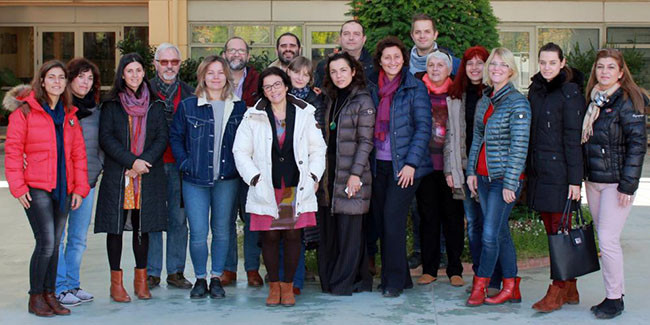
The project objective was achieved by the following measures:
- Identification of at least 2 national best practice examples by each partner organization and preparation of a summary and presentation of the best practice examples
- Organization of an internet-based platform for knowledge exchange between the project partners
- 2 international training workshops
The project was managed by the German NGO "Association for Inclusion and Social Work e.V.". 40 participants from 10 partner countries (Germany, Austria, Spain, Bulgaria, Poland, France, Italy, Greece, Portugal, Slovenia) will participate in the project.
Project partners: Germany (Coordinator), Austria, Spain, Bulgaria, Poland, France, Italy, Greece, Portugal, Slovenia
Project duration: November 2017 to April 2019
Like Home
Promoting the Inclusion of newly arrived Migrants and their Integration into the Labor Market and the Host Society.
From December 2016 to November 2018, ÖJAB and 8 organizations from different EU countries participated in the „LikeHome" project. The overall aim of the LikeHome project was to foster the inclusion of newly arrived migrants and refugees to the host country education and training system, to the local economy and to the society in general.
As part of the project, the project partners implemented following activities:
- Development and implementation of a framework of best practice models for the assessment and recognition of already acquired skills, qualifications and competences of migrants and refugees, based on models defined by the European Commission as best-practice models
- Development of training materials for trainers, educators, and government officials responsible for reception of migrants and recognition of qualifications
- Creation of the LikeHome e- assessment tool
- Organization of Train the Trainer seminars
- Piloting
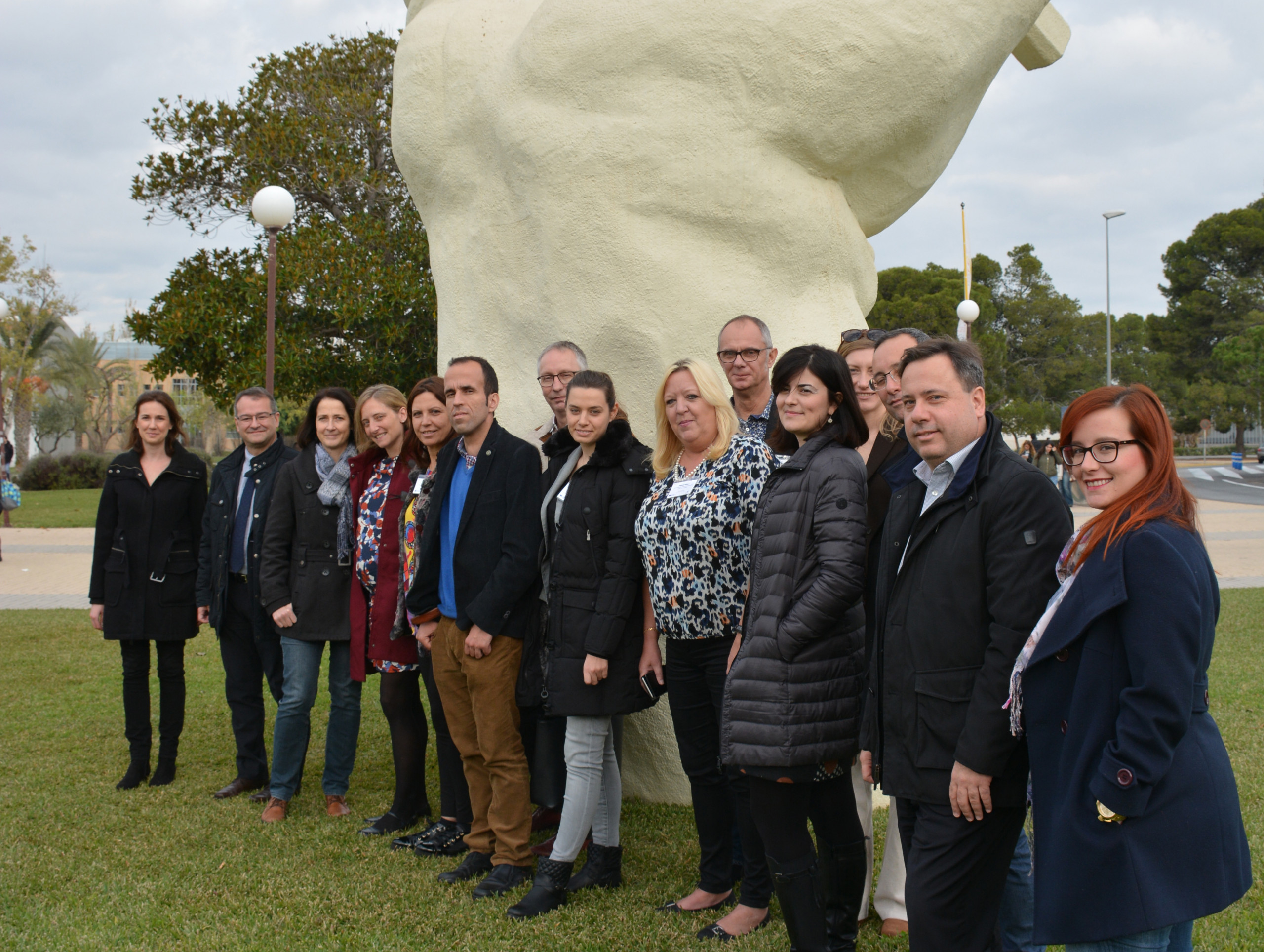
Project partners: Spain (coordinator), Austria, Greece, Belgium, Germany, Sweden, Italy
Project duration: December 2016 - November 2018
This project has received funding from the European Union’s Erasmus+ programme under grant agreement No 2016 - 2791 / 001 – 001. It has been funded with support from the European Commission. This publication reflects the views only of the author, and the Commission cannot be held responsible for any use which may be made of the information contained therein.
Radical Online Education
The Project addressed the Issue of Radicalization and Recruitment of Youth for Combat in War Zones. This Recruitment often happens through the Internet and through Social Media.
Radical Online Educationist was a 20-month European project, co-funded by the European Commission's Erasmus + (KA2) program. The project addressed the issue of radicalization and recruitment of youth for combat in war zones. This recruitment often happens through the internet and through social media.
That's why "Radical Online Education" wanted to be pro-active against Internet radicalization and find an appropriate response to this threat. The project as aimed at trainers and social workers who want to improve their digital skills, learn effective online engagement and be trained in the targeted use of information and communication technologies.
As part of this innovative project, an e-learning training program was developed so that trainers and social workers can use social networks to detect signs of digital radicalization early and to stimulate critical thinking. Furthermore, a digital best practice guide was compiled, which should include expertise in the field of radicalization prevention, all information and ideas exchanged by the participating organizations and advice for establishing critical thinking.
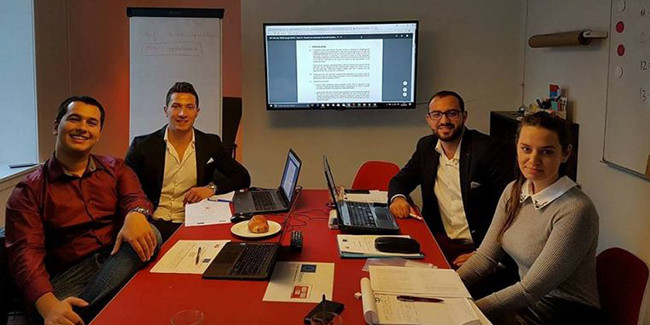
Project partners: Danish Youth Team, Denmark (Coordinator), PROJUVEN, Spain, Alternativi International, Bulgaria, ÖJAB
Project duration: October 2017 to March 2019
Mobilna Prešernova
Ein Mobilitätsprojekt der Wirtschaftsschule aus Ljubljana. Europass Mobilität - ein wichtiges EU Zertifikat.
Von Juni bis Juli 2018 absolvierten 10 engagierte Schüler:innen unterschiedlicher Klassen der Wirtschaftsschule „Ekonomska šola“ aus Ljubljana ein dreiwöchiges Praktikum in verschiedenen ÖJAB Institutionen, darunter das Europahaus Kongresszentrum, das ÖJAB Dr. Bruno Buchwieser Haus, das ÖJAB Haus NeuMargareten, das BPI der ÖJAB, die ÖJAB Zentrale und die myNext Sommer Hostels in Wien.
Das Ziel des Mobilitätsprojektes welches im Rahmen des Erasmus+ Programmes durchgeführt wurde, war es das theoretische Wissen der Student:innen aus dem Bereich Büro/Administration mit praktischen Erfahrungen durch die Tätigkeit in den ÖJAB-Institutionen zu verbinden und die sozialen Fertigkeiten der Student:innen durch die Arbeit in einem neuen Arbeitsumfeld zu stärken.
Die ÖJAB übernahm als Aufnahmepartnerorganisation, die Organisation und Koordination des Aufenthalts der slowenischen Gruppe in Wien. Dies umfasste die Organisation der Unterbringung, der Verpflegung, der Praktikumsplätze und der kulturellen Aktivitäten. Außerdem war die ÖJAB für das Monitoring, die Evaluierung des Praktikums und die Erstellung der Europass und ÖJAB Zertifikate verantwortlich.
Die Student:innen wurden im ÖJAB Studentenwohnheim Dr. Bruno Buchwieser untergebracht und erhielten ihre Verpflegung aus dem gegenüberliegenden Rosen Hotel. Das Projekt wurde zusätzlich durch kulturelle Aktivitäten wie Stadtrundgängen und Besichtigungen verschiedener Sehenswürdigkeiten ergänzt. Am letztem Tag ihres Aufenthaltes erhielten alle Teilnehmer:innen das Zertifikat „Europass Mobilität“ verliehen – ein wichtiges EU Zertifikat – mit welchem nicht nur der Auslandsaufenthalt, sondern auch die dort erworbenen Kompetenzen bescheinigt werden.
Die Wirtschaftsschule aus Slowenien (Ekonomska Sola Ljubljana) hat ein kurzes Video mit einigen Eindrücken zu diesem Projekt erstellt welches hier ab Herbst aufrufbar ist.
Projektpartner: Ekonomska šola Ljubljana, Slowenien (Koordinator), ÖJAB, Österreich (Projektpartner)
Projektdauer: 24. Juni bis 14. Juli 2018
Dieses Mobilitätsprojekt wurde von der EU gefördert und zwar im Rahmen des Programms Erasmus+. Ziel dieses Programms ist es u.a. die Mobilität der Schüler:innen zu erhöhen.


